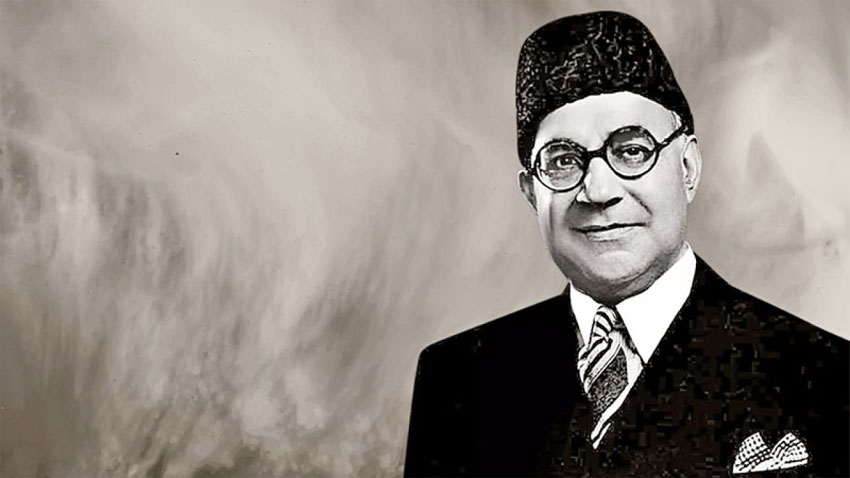Table of Contents
-
Introduction to Liaquat Ali Khan
-
Early Life and Education
-
Role in Pakistan Movement
-
Tenure as Prime Minister
-
Major Achievements
-
Challenges Faced
-
Assassination and Legacy
-
Impact on Pakistan’s Politics
-
FAQs
Longest Serving Prime Minister of Pakistan
Pakistan’s political history has witnessed numerous prime ministers who have played a pivotal role in shaping the country’s political landscape. Among these leaders, Liaquat Ali Khan stands out as the longest-serving Prime Minister of Pakistan, having served from August 15, 1947, to October 16, 1951. This article delves into the life, tenure, achievements, and legacy of Liaquat Ali Khan, providing a comprehensive overview for readers.

Introduction to Liaquat Ali Khan
Liaquat Ali Khan was born on October 1, 1895, in Karnal, Punjab, British India. He was one of the key architects of Pakistan’s independence and served as the country’s first Prime Minister after the partition of India. A close confidant of Quaid-e-Azam Muhammad Ali Jinnah, Liaquat Ali Khan played a crucial role in laying the foundation of the newly established state of Pakistan.
Early Life and Education
Liaquat Ali Khan belonged to a prominent aristocratic family. His early education was completed in Aligarh, followed by higher studies at Exeter College, Oxford, where he obtained a degree in law. He was also called to the bar at Inner Temple, London. These academic pursuits equipped him with a deep understanding of governance, law, and diplomacy.
Political Awakening
While studying in England, Liaquat Ali Khan became influenced by the political climate and joined the All-India Muslim League in 1923 upon his return to India. His dedication to the Muslim cause made him an influential figure in Indian politics.
Role in Pakistan Movement
Key Contributions
-
Support for Quaid-e-Azam: Liaquat Ali Khan was a loyal supporter of Muhammad Ali Jinnah, working closely to mobilize the Muslim community.
-
1940 Lahore Resolution: Played a significant role in the drafting and adoption of the resolution that called for the creation of Pakistan.
-
Negotiations with the British: Represented the Muslim League in various negotiations with British officials, advocating for the rights of Muslims in India.
Tenure as Prime Minister
Liaquat Ali Khan’s tenure began on August 15, 1947, following the creation of Pakistan. He served until his tragic assassination on October 16, 1951.
Key Policies and Actions
-
Economic Planning: Initiated the first Five-Year Plan to address economic challenges.
-
Constitution-Making: Laid the groundwork for Pakistan’s first constitution.
-
Foreign Policy: Advocated for strong ties with the United States and other Western nations, while maintaining neutrality during the Cold War.
-
Kashmir Issue: Took a firm stance on the Kashmir conflict, emphasizing Pakistan’s claim to the region.
Major Achievements
Strengthening National Unity
-
Promoted Urdu as the national language to unify diverse ethnic groups.
-
Advocated for Islamic principles as the foundation of Pakistan’s governance.
Economic Reforms
-
Focused on agricultural development and land reforms.
-
Encouraged industrialization to boost the country’s economy.
Military Development
-
Strengthened the armed forces to safeguard Pakistan’s sovereignty.
-
Established the groundwork for Pakistan’s defense policies.
Challenges Faced
Refugee Crisis
One of the greatest challenges Liaquat Ali Khan faced was the massive influx of refugees from India. Millions of Muslims migrated to Pakistan, creating a humanitarian crisis that required urgent attention.
Political Instability
The early years of Pakistan were marked by regional and ethnic tensions. Liaquat Ali Khan worked tirelessly to establish a stable political system.
External Threats
The Kashmir conflict posed a significant challenge. Liaquat Ali Khan’s government took a strong stance on the issue, advocating for Pakistan’s claim over the region and supporting diplomatic efforts to resolve the dispute.
Assassination and Legacy
On October 16, 1951, Liaquat Ali Khan was assassinated while addressing a public meeting in Rawalpindi. His death marked the first political assassination in Pakistan’s history, leaving the nation in shock and creating a vacuum in leadership.
Investigation and Controversy
The circumstances surrounding his assassination remain unclear. The investigation was inconclusive, leading to various conspiracy theories about the motives behind the killing.
Legacy
-
Remembered as the "Shaheed-e-Millat" (Martyr of the Nation).
-
His leadership during Pakistan’s formative years set the foundation for the country’s political and economic development.
-
Inspired future leaders with his dedication to democracy and national integrity.
Impact on Pakistan’s Politics
Liaquat Ali Khan’s tenure as Prime Minister left a lasting impact on Pakistan’s political and economic systems. His emphasis on unity, development, and international diplomacy continues to influence Pakistan’s policies today.
Long-Term Contributions
-
Constitutional Development: Laid the groundwork for the country’s first constitution.
-
Defense Policies: Strengthened Pakistan’s military capabilities, setting the stage for future advancements.
-
Economic Foundation: Introduced policies that encouraged industrialization and economic planning.
FAQs
Who was Liaquat Ali Khan?
Liaquat Ali Khan was Pakistan’s first Prime Minister and a close ally of Muhammad Ali Jinnah. He played a key role in the creation and early governance of Pakistan.
How long did Liaquat Ali Khan serve as Prime Minister?
He served as Prime Minister from August 15, 1947, to October 16, 1951, making him the longest-serving Prime Minister of Pakistan.
What were Liaquat Ali Khan’s major achievements?
-
Initiated Pakistan’s first Five-Year Plan.
-
Advocated for national unity through language and Islamic principles.
-
Strengthened Pakistan’s military and economic foundations.
How did Liaquat Ali Khan die?
He was assassinated on October 16, 1951, during a public address in Rawalpindi.
What is Liaquat Ali Khan’s legacy?
Liaquat Ali Khan is remembered as a dedicated leader who laid the foundation for Pakistan’s governance and development during its formative years.





.gif)








.gif)







Sign in
to continue to ilmkidunya.com